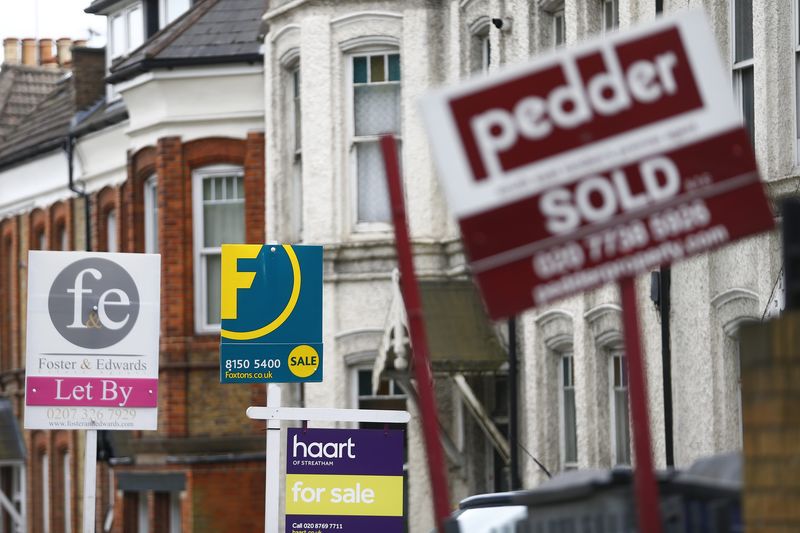By Geoffrey Smith
Investing.com -- U.K. house prices fell by the most in over two years in November, as the chaos unleashed by Liz Truss's ill-fated 'mini-budget' gummed up the country's mortgage lending market.
Average selling prices fell 1.4% from October, the most since June 2020, when nationwide lockdowns in the first stage of the pandemic had complicated the selling process, according to Nationwide, one of the country's biggest mortgage lenders. That brought the annual rate of house price inflation down to 4.4%, the slowest it's been since September 2020.
Both figures were well below consensus forecasts.
Lenders had withdrawn nearly all their fixed-rate mortgage products in October after then-Prime Minister Truss attempted to revive a flagging U.K. economy with the biggest tax cuts in over 50 years. Her plans to fund the cuts with higher borrowing were shot down by the bond markets, however, which pushed U.K. bond yields sharply higher in anticipation that the measures would stoke even higher inflation.
"While financial market conditions have stabilised, interest rates for new mortgages remain elevated and the market has lost a significant degree of momentum," Nationwide's chief economist Robert Gardner said in a statement. "Housing affordability for potential buyers and home movers has become much more stretched at a time when household finances are already under pressure from high inflation."
He added that the market is likely to stay subdued for some time yet, with inflation set to remain high for most of next year, causing the Bank of England to raise interest rates further.
Housing equity accounts for around 36% of total U.K. household wealth, according to the Office for National Statistics, second only to private pensions. As such, any sustained drop in house prices is likely to generate significant negative 'wealth effects', depressing consumer spending.
However, the rally over the last two years has made home ownership all but impossible for an ever-larger share of the population. Nationwide estimates that the typical housebuyer in London and Southeast England belongs to the richest 10% of the population.
The news hurt the share prices of some of the U.K.'s biggest estate agents, with Foxtons (LON:FOXT) stock falling 0.4%, Purplebricks (LON:PURP) stock falling 1.3% and Onthemarket (LON:OTMPO) stock falling 2.4%, on a day when almost all other stocks were positive, pulled higher by the U.S. market rally that followed a speech by Federal Reserve Chair Jerome Powell.
Powell had said little new in his speech, strengthening expectations that the Fed's next rate increases will be smaller than the jumbo-sized 75 basis point hikes of recent months. The market rallied on relief that Powell had said nothing to make that change of pace less likely.
